The role of sportswashing in politics and athletics
The term has gained traction in recent years, but what does it really mean, and how does it affect the world's sports?


A free daily email with the biggest news stories of the day – and the best features from TheWeek.com
You are now subscribed
Your newsletter sign-up was successful
With the controversial 2022 World Cup in Qatar, the role of sportswashing on the global stage is once again in the headlines. What exactly is sportswashing, though, and what role does it play not only in sports, but in modern politics? Here's everything you need to know:
What is sportswashing?
While there is no single definition, sportswashing is described by Sports Illustrated as "the use of sports to present a sanitized, friendlier version of a political regime or operation."
Jules Boykoff, a professor of politics and government at Pacific University, described it similarly, telling Yahoo! Sports, "I define sportswashing as when political leaders use sports to appear important or legitimate on the world stage while stoking nationalism and deflecting attention from chronic social problems back home." The outlet went on to note that while the term itself is relatively new, the concept of sportswashing has been around for nearly a century.
The Week
Escape your echo chamber. Get the facts behind the news, plus analysis from multiple perspectives.

Sign up for The Week's Free Newsletters
From our morning news briefing to a weekly Good News Newsletter, get the best of The Week delivered directly to your inbox.
From our morning news briefing to a weekly Good News Newsletter, get the best of The Week delivered directly to your inbox.
One notable historic example occurred during the 1936 Olympics in Berlin. Though Germany was already under the authoritarian rule of the Nazi Party, Adolf Hitler played host to the world during the games, attempting to present a clean, well-run version of Nazi Germany. In reality, though, Bleacher Report noted the games were little more than a festival of Nazi propaganda, and highlighted the "danger of politicizing sports."
What is a recent example of sportswashing?
One recent sportswashed event is LIV Golf. Founded in 2021, it appears to be no more than a standard professional golf tour. However, LIV Golf was started and financed entirely by the royal family of Saudi Arabia through their state-owned investment fund. What is the true purpose of LIV Golf, though? As The New York Times reported, it "depends whom you ask."
The Times noted that the tournament, which is slated for expansion in 2023, bills itself as "an opportunity to reinvigorate golf." LIV Golf is also, notably, the most expensive golf event in history, with the total purse being $25 million and even the last-place finisher guaranteed to win $120,000.
However, many have argued for a boycott of the tournament, given the financial backing from its Saudi founders. Saudi Arabia is known for its poor human rights record, with a report from the U.S. State Department noting credible instances of torture, summary executions, arbitrary arrests, sexual violence, and more. It has been argued that LIV Golf is merely an attempt to spin the Saudis into a more positive light.
A free daily email with the biggest news stories of the day – and the best features from TheWeek.com
One human rights group, Grant Liberty, released a report dedicated to Saudi Arabian sportswashing efforts in 2021. "In Saudi Arabia's case, they want the country to be associated with elite sporting events to change the global perception of a murderous and brutal regime," the report said.
What other regimes have utilized sportswashing?
Another notable example concluded earlier this year — the 2022 Winter Olympics in Beijing. Given that the Olympics are among the largest international sporting event in the world, host countries that are associated with human rights abuses are undoubtedly placed under heavy scrutiny.
This was definitely the case when it comes to Beijing, as China has been accused of significant human rights violations, particularly involving the country's ethnic Uyghurs. These abuses include arbitrary detentions, torture, political indoctrination, and a clamping down on freedom of speech, Amnesty International reported.
Allegations of sportswashing in China go back as far as 2008, when they hosted that year's Summer Olympics. At the time, Human Rights Watch said that, while the country vowed to use the games as a "force for good," reports of human rights violations were seen throughout those Olympics. Despite this, Human Rights Watch noted, instead of the International Olympic Committee punishing China for these abuses, they awarded them the 2022 games instead.
As a result, the 2022 Olympics were similarly subject to sportswashing by Chinese officials. Amnesty International even warned the international community prior to the games that they would be "complicit in a propaganda exercise," AFP reported. The organization further said that hosting the Olympics would undermine efforts to shed light on abuses within China.
Will sportswashing play a major role in the World Cup?
The short answer: Yes, most definitely. Even before the kickoff of the first match of the World Cup in Qatar, watchdogs noted signs of sportswashing by the Qatari government. However, many of the human rights issues surrounding these games, in contrast to other events, are related to the actual preparation of the World Cup itself.
First, there was the issue of Qatar even being awarded the games, which was announced more than a decade ago. The 2010 decision to name Qatar as the host was heavily criticized at the time due to the country's track record of alleged abuses. Sepp Blatter, the president of FIFA at the time of the selection, recently said himself that letting Qatar host the games was a mistake, per CNN.
So why was Qatar chosen? Well, according to the U.S. Justice Department, FIFA — an organization notably embroiled in corruption scandals — was bribed to choose the country. This is despite Qatar being a country that, as ESPN noted, had numerous infrastructure problems, almost no sports tradition, and a troubling record of human rights.
This means Qatar has spent the last decade preparing for the World Cup, including building dozens of hotels, new roads and transit systems, and seven stadiums. However, as The Washington Post reported, 85 percent of Qatar's population are migrant workers, many of whom were reportedly subjected to slave-labor conditions while constructing the country's gleaming soccer infrastructure. According to The Guardian, at least 6,500 migrants from South Asia have died in Qatar over the past decade.
How else is sportswashing used?
The concept can also be found in less obvious scenarios, mainly regarding corporate sponsorships. While on the topic of Qatar, this country in particular has garnered notable branding deals with some extremely large sports clubs. The country's Hamad International Airport, in the capital city of Doha, has been the sponsor for German soccer club Bayern Munich since 2018.
The country's aviation industry in general seems to have a particular proclivity for sponsoring soccer teams. Bayern Munich, for example, is additionally sponsored by Qatar's state-run flag carrier, Qatar Airways. The airline also has a number of additional soccer sponsorships, and is currently featured or has been featured in the past on the jerseys of Paris Saint-Germain, FC Barcelona, A.S. Roma, and more.
Many other countries known for authoritarian regimes have featured similar corporate sponsorships. The petroleum-rich Saudi Arabia has used its partially state-owned oil company, Aramco, to sponsor Formula One racing events. Aeroflot, the flag carrier of Russia, was a sponsor of the Manchester United soccer club until their deal was ended following the country's invasion of Ukraine.
How does the global community react to sportswashing?
While there have been a variety of responses to sportswashing, there have, historically, not been many actual consequences for participating regimes. However, some sports clubs and organizations have begun to take some matters into their own hands.
Much of this protesting has revolved around the World Cup in Qatar. The Danish Football Association, for example, called for FIFA to take "action" on Qatar, France24 reported, pressuring the country to improve its human rights record. Formula One driver Lewis Hamilton has similarly been critical of Qatar, calling it "one of the worst [countries] in this part of the world" when it came to human rights, per The Guardian.
However, despite these well-intentioned moves, there hasn't been a ton of actionable steps taken by governments to stop sportswashing, and the openness toward the upcoming World Cup is an indicator that the practice is not likely to go away.
Justin Klawans has worked as a staff writer at The Week since 2022. He began his career covering local news before joining Newsweek as a breaking news reporter, where he wrote about politics, national and global affairs, business, crime, sports, film, television and other news. Justin has also freelanced for outlets including Collider and United Press International.
-
 Democrats push for ICE accountability
Democrats push for ICE accountabilityFeature U.S. citizens shot and violently detained by immigration agents testify at Capitol Hill hearing
-
 The price of sporting glory
The price of sporting gloryFeature The Milan-Cortina Winter Olympics kicked off this week. Will Italy regret playing host?
-
 Fulton County: A dress rehearsal for election theft?
Fulton County: A dress rehearsal for election theft?Feature Director of National Intelligence Tulsi Gabbard is Trump's de facto ‘voter fraud’ czar
-
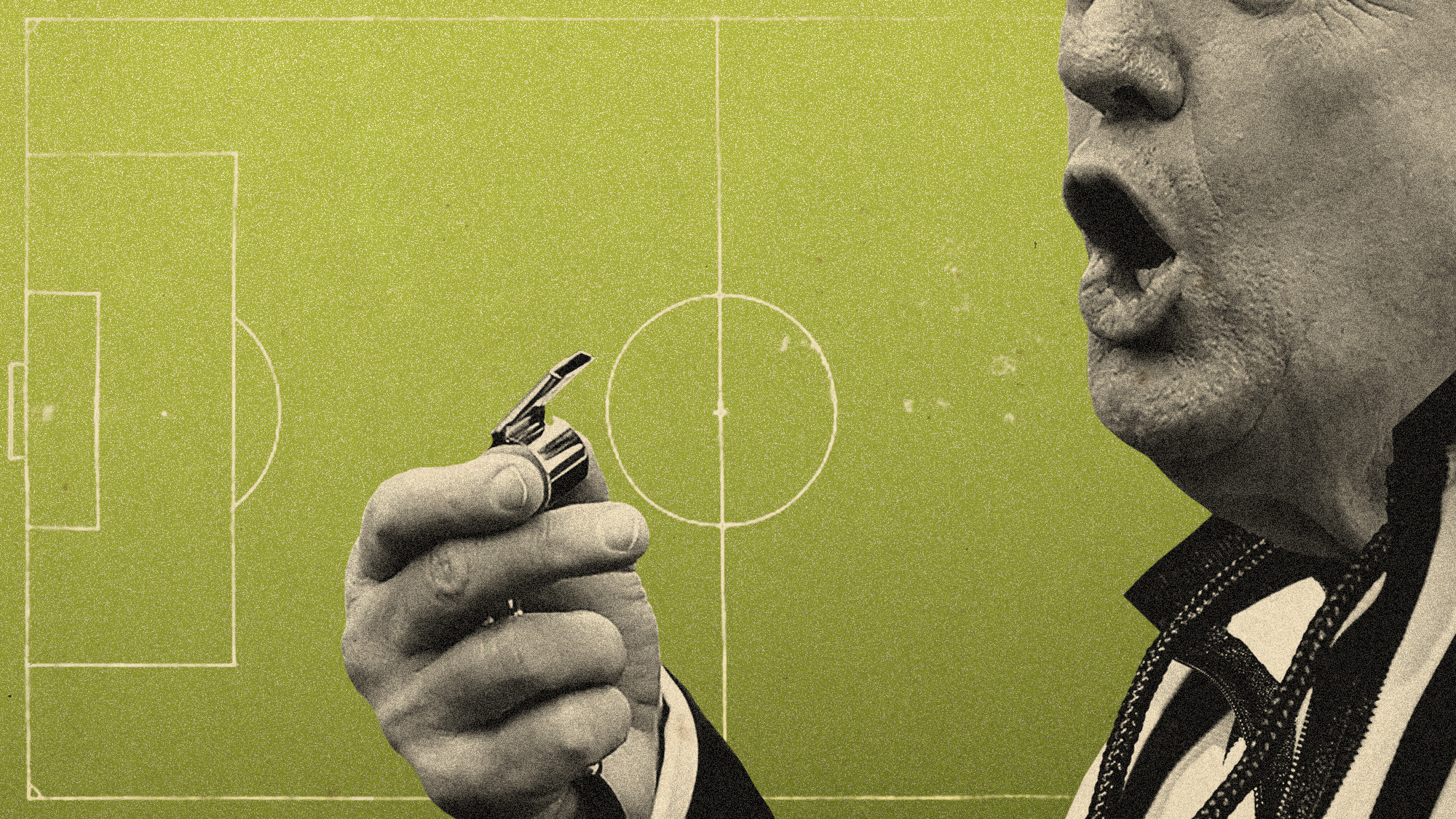 Will 2026 be the Trump World Cup?
Will 2026 be the Trump World Cup?In the Spotlight US president already using the world’s most popular football tournament to score political points
-
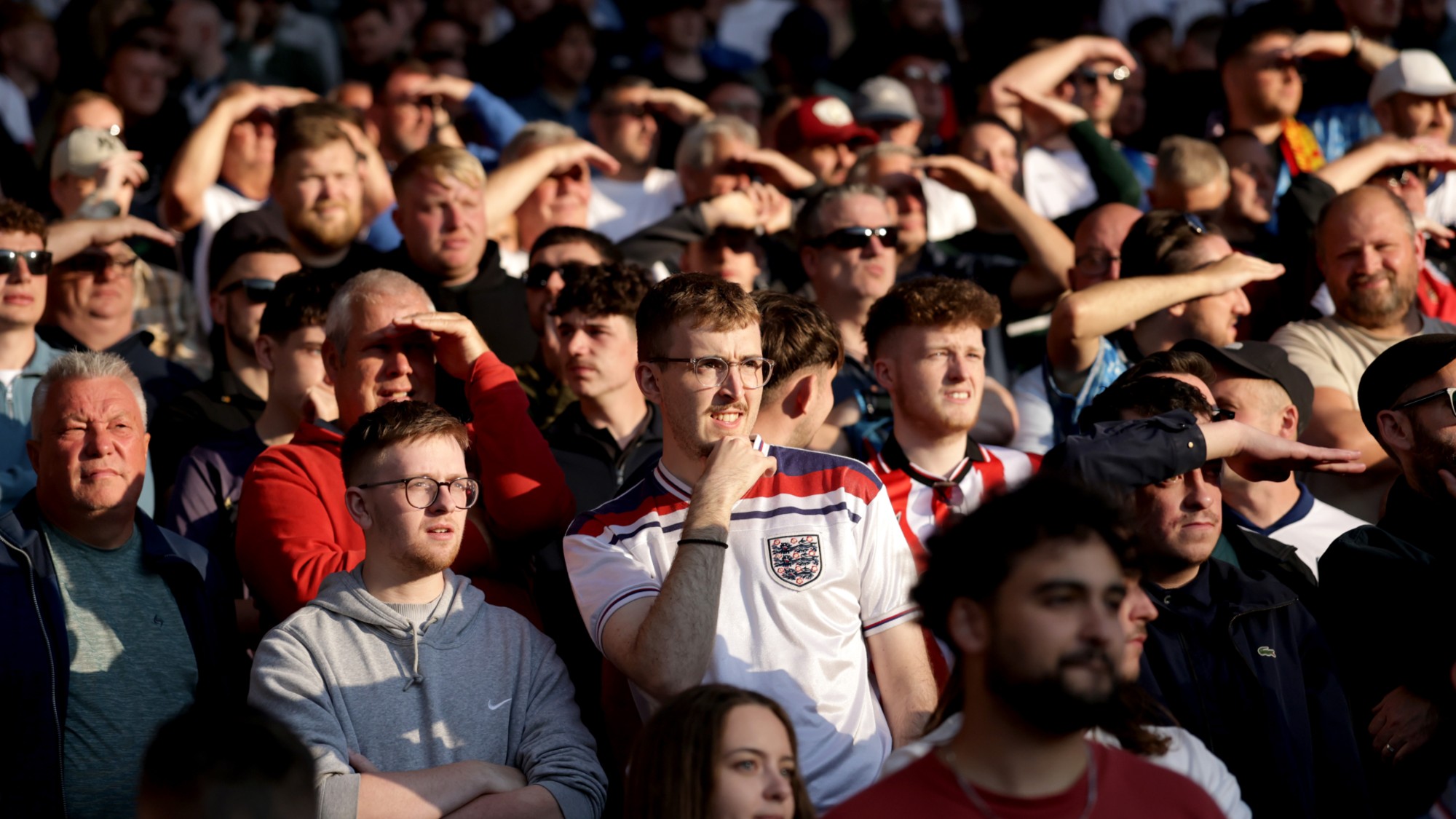 World Cup 2026: uncertainty reigns with one year to go
World Cup 2026: uncertainty reigns with one year to goIn the Spotlight US-hosted Fifa tournament has to navigate Trump's travel bans, logistical headaches and an exhausting expanded format
-
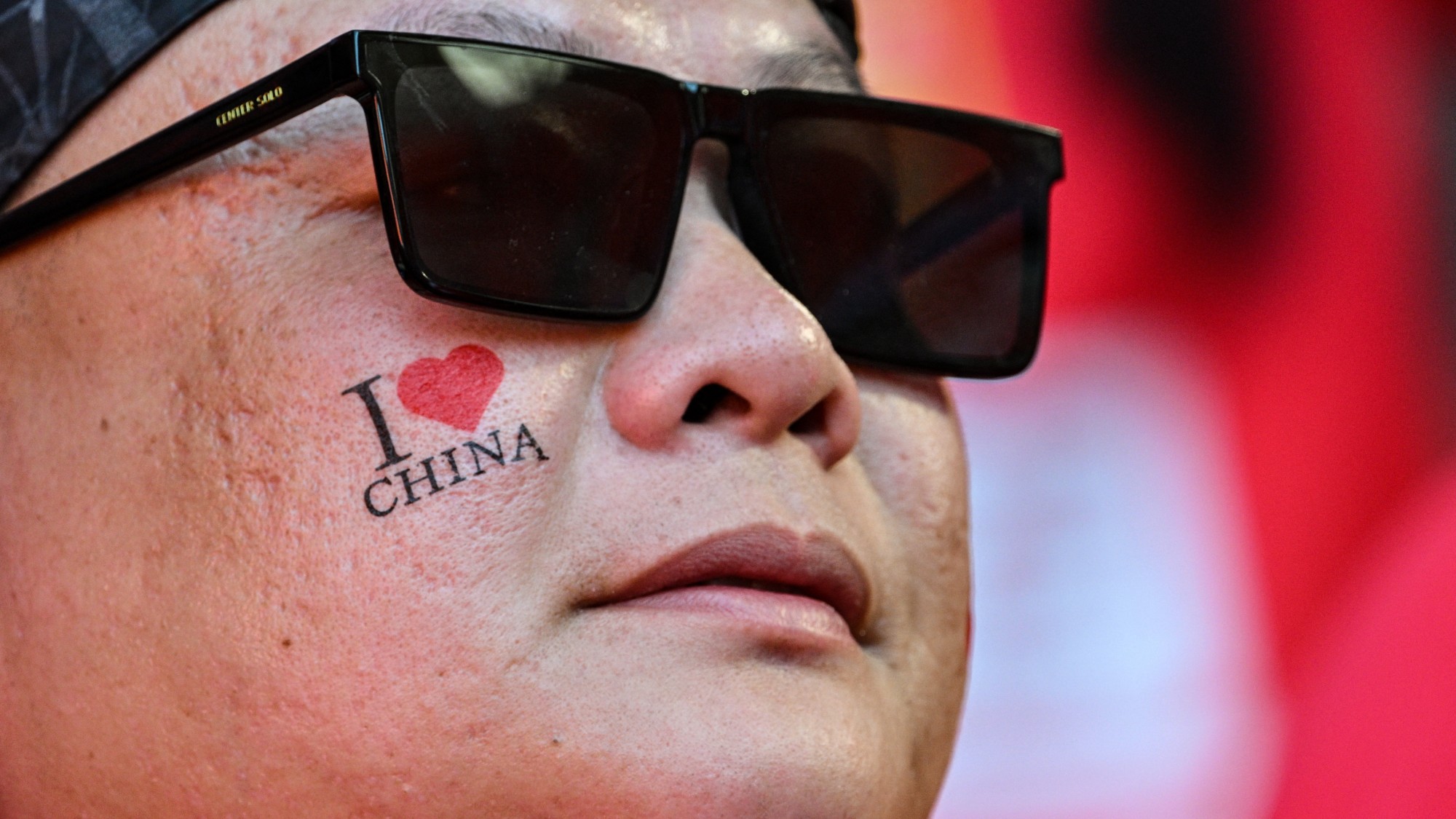 China's football crisis: what's happened to Xi's XI?
China's football crisis: what's happened to Xi's XI?In The Spotlight String of defeats and finishing bottom of World Cup qualifying group comes a decade after Xi Jinping launched a football crusade
-
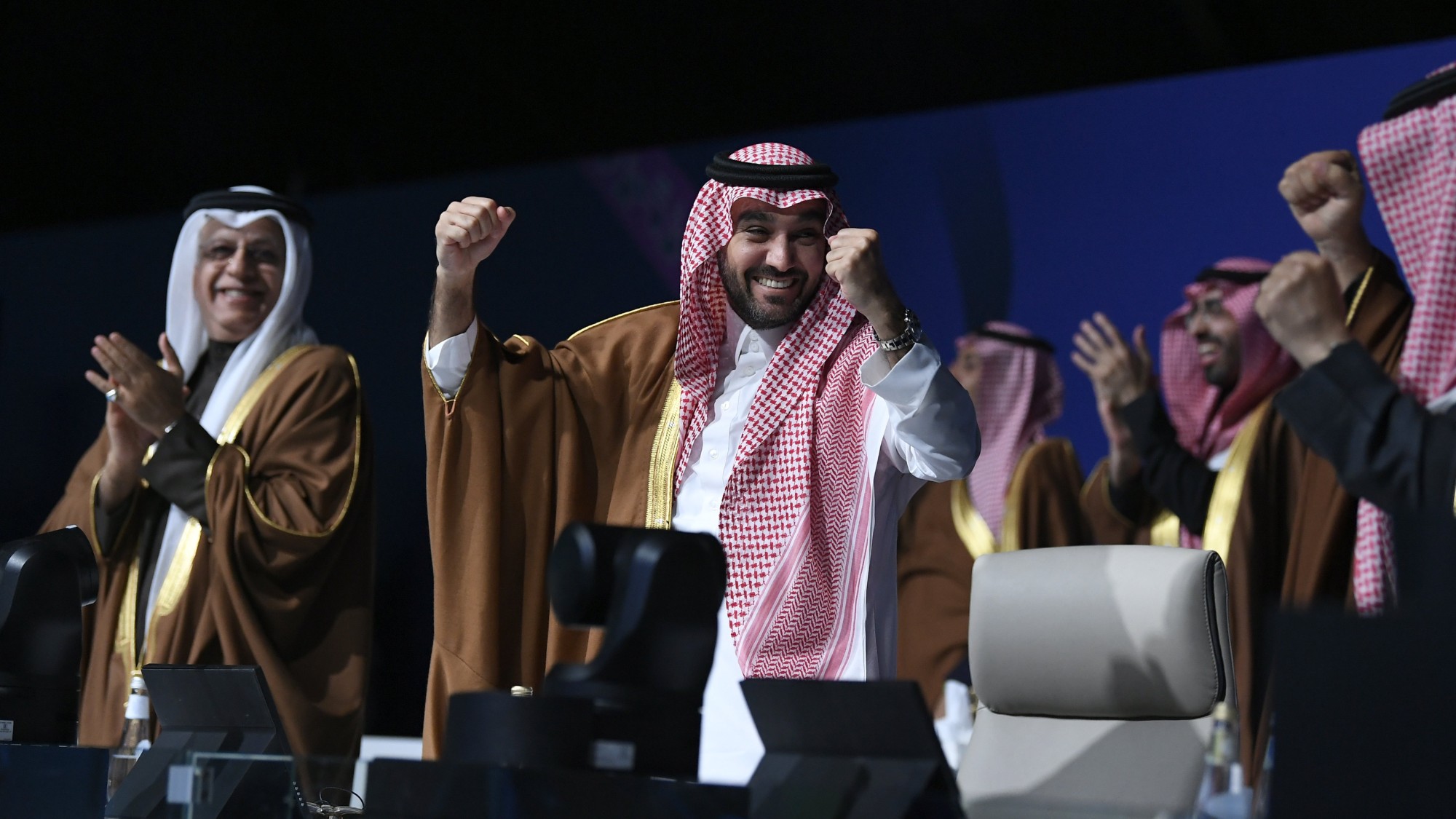 Saudi Arabia World Cup: have lessons been learned from Qatar?
Saudi Arabia World Cup: have lessons been learned from Qatar?Today's Big Question Human rights groups fear a repeat of issues at the 2022 tournament
-
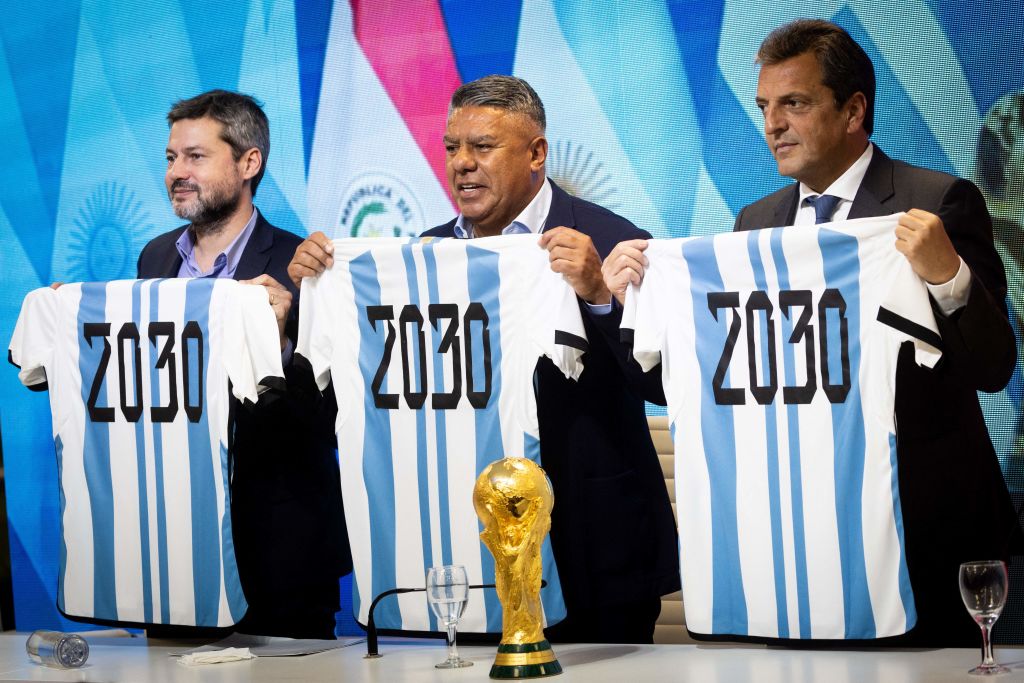 FIFA is embroiled in back-to-back controversies around the World Cup
FIFA is embroiled in back-to-back controversies around the World CupUnder The Radar The controversial selection of the 2030 hosts puts Saudia Arabia in a prime position for 2034
-
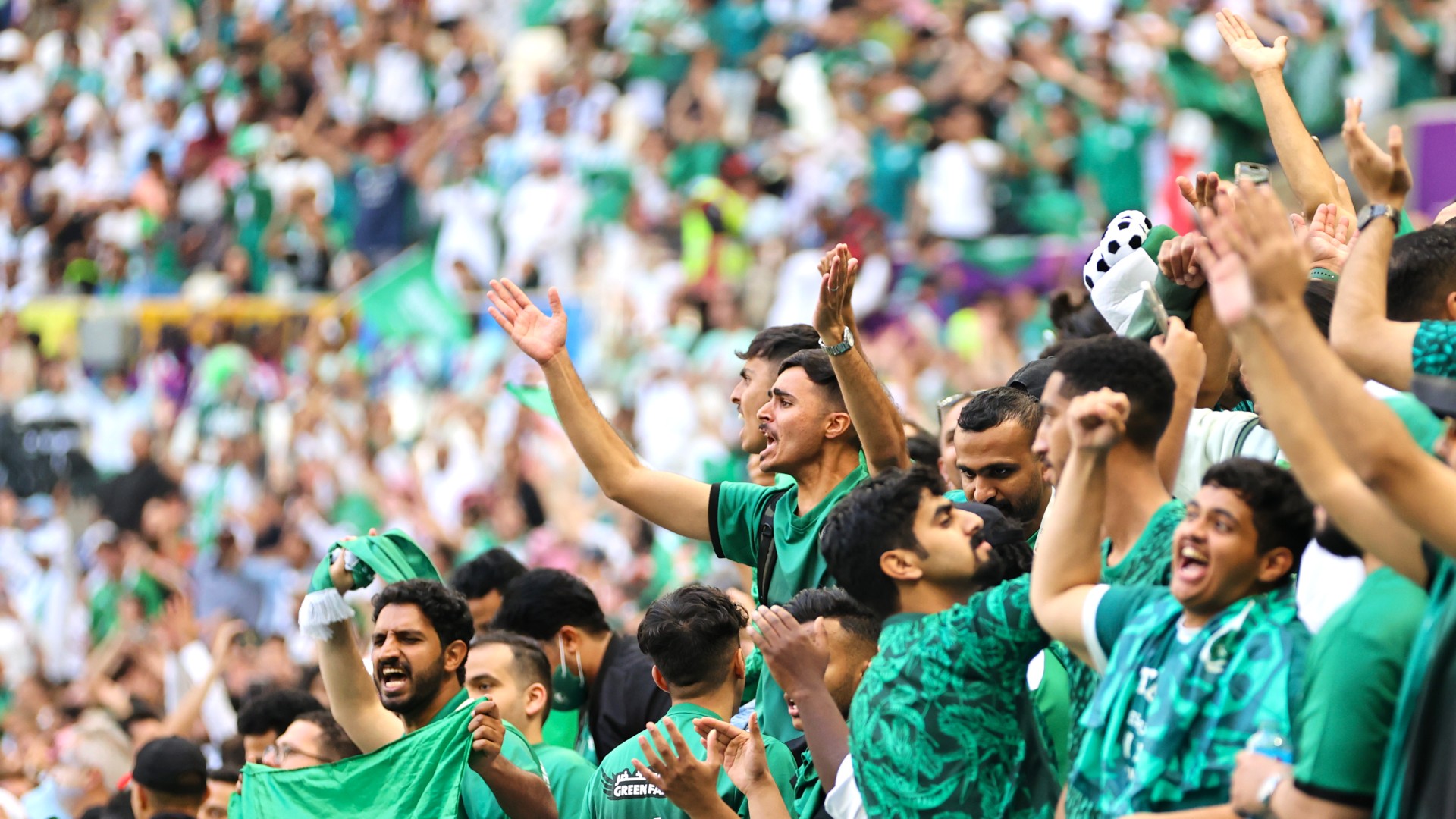 Saudi Arabia's 2034 World Cup: glitz, glamour and 'grimly inevitable'
Saudi Arabia's 2034 World Cup: glitz, glamour and 'grimly inevitable'Talking Point Critics claim country is guilty of sportswashing as it stands unopposed to host tournament
-
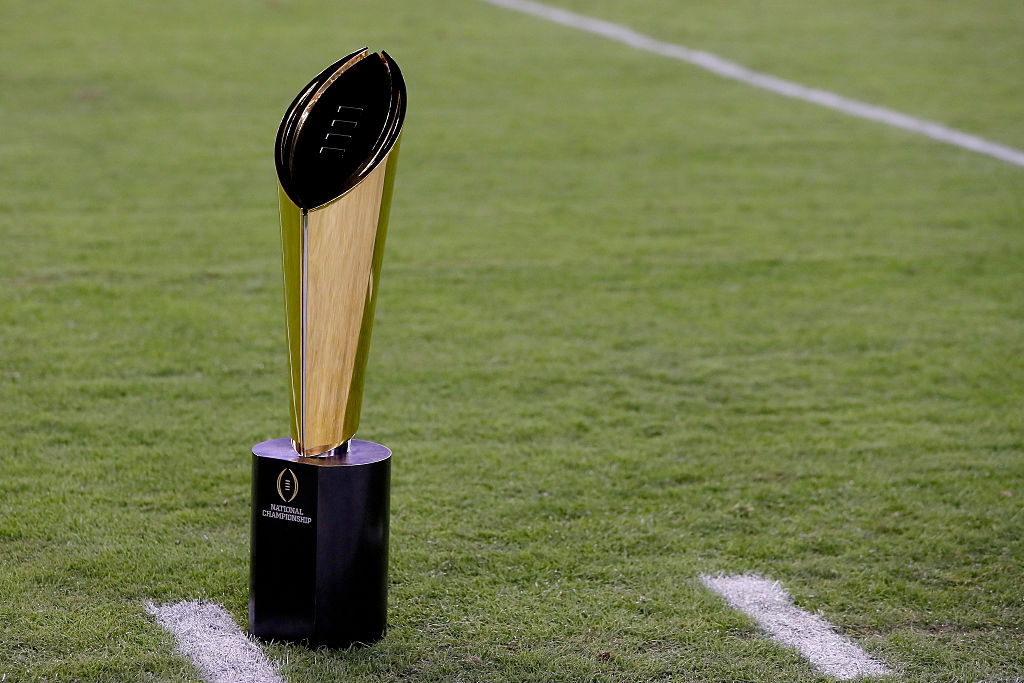 An early look at the college football national champion contenders
An early look at the college football national champion contendersThe Explainer What school could come out on top of the FBS this coming January?
-
 Why baseball's new rules rule
Why baseball's new rules ruleSpeed Read Attendance and viewership have gone up while average game time has gone down
